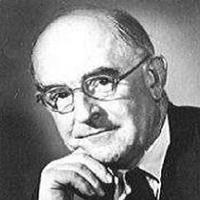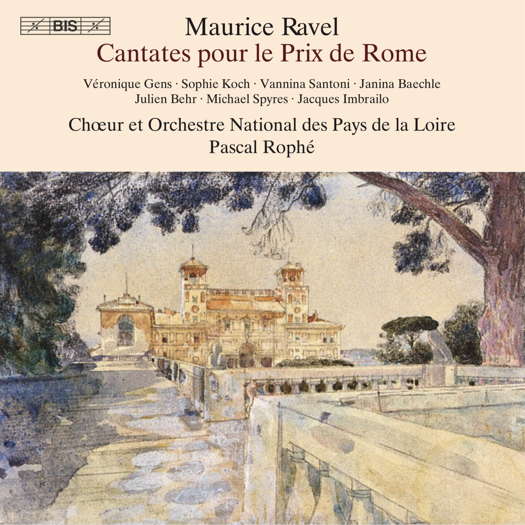 CENTRAL ENGLAND: Mike Wheeler's concert reviews from Nottingham and Derbyshire feature high profile artists on the UK circuit - often quite early on their tours.
CENTRAL ENGLAND: Mike Wheeler's concert reviews from Nottingham and Derbyshire feature high profile artists on the UK circuit - often quite early on their tours.
 DISCUSSION: What is a work? John Dante Prevedini leads a discussion about The performing artist as co-creator, including contributions from Halida Dinova, Yekaterina Lebedeva, Béla Hartmann, David Arditti and Stephen Francis Vasta.
DISCUSSION: What is a work? John Dante Prevedini leads a discussion about The performing artist as co-creator, including contributions from Halida Dinova, Yekaterina Lebedeva, Béla Hartmann, David Arditti and Stephen Francis Vasta.
 SPONSORED: Ensemble. Unjustly Neglected - In this specially extended feature, Armstrong Gibbs' re-discovered 'Passion according to St Luke' impresses Roderic Dunnett.
SPONSORED: Ensemble. Unjustly Neglected - In this specially extended feature, Armstrong Gibbs' re-discovered 'Passion according to St Luke' impresses Roderic Dunnett.
All sponsored features >>

The Ravel Affair
GERALD FENECH listens to a series of works by Maurice Ravel which all failed to win the Prix de Rome
'Pascal Rophé draws some convincing performances and, in his hands, the music has an immediacy that keeps it consistently fresh and vivid.'
The Grand Prix de Rome owes its beginnings to Louis XIV. Instituted to encourage competition between painters and sculptors, it eventually embraced even musicians. Between 1803 and 1968, the Grand Prix de Rome marked the zenith of composition studies at the Paris Conservatoire. In Maurice Ravel's time the competition included an elimination round - a fugue and a choral piece - followed by a cantata in the form of an operatic scene. The entries were judged by a jury which generally favoured expertise and conformity more than originality, and Ravel's growing reputation as a member of the avant-garde was therefore hardly to his advantage, and may explain why he never won the coveted 'Premier Grand Prix' and the three-year stay at Rome's Villa Medici that went with it.
As the twentieth century dawned, Ravel hoped to win this prestigious prize to further his career. Indeed, between 1900 and 1905 he made five consecutive attempts, and was highly optimistic that he could follow in the footsteps of such greats as Berlioz, Gounod, Bizet and Massenet. Sadly, he failed every time. In 1900, after presenting the short choral piece Les Bayadères, he was eliminated in the first round.
Listen — Ravel: Les Bayadères
(BIS-2582 CD2 track 3, 0:01-0:55) ℗ 2022 BIS Records AB :
In 1901 he fared somewhat better, but only came second with the cantata Myrrha and another very short chorus Tout est lumière. In 1902 Ravel composed yet another cantata, Alcyone, and a brief chorus, La Nuit. 1903 saw him present Alyssa, yet another cantata, and the miniature chorus Matinée de Provence. On both occasions he won nothing. According to musicologist Paul Landormy, the judges suspected Ravel of making fun of them by submitting extremely academic cantatas as to seem like parodies. In 1905 Ravel, now thirty, competed for the last time with another short chorus, L'Aurore. He was eliminated once again in the first round, which even critics unsympathetic to his music, including Lalo, denounced as unjustifiable.
The indignation of the press grew when it emerged that the Senior Professor at the Conservatoire, Charles Lenepveu, was on the jury, and only his students were selected for the final round. His insistence that this was pure coincidence was not well received. L'affaire Ravel became a national scandal, leading to the early retirement of Dubois, and his replacement Fauré was tasked with the job of reorganising the Conservatoire. Ravel did, after all, leave his mark on the Prix de Rome.
This two-disc set brings together all of these rare vocal pieces by the composer: five shorter settings for choir and orchestra, and three cantatas, each with three characters taking part in the plot, which followed a more or less fixed sequence of introduction, recitative and aria, a duet, a trio and a brief conclusion.
Listen — Ravel: Le Barde, porte-glaive ! (Alyssa)
(BIS-2582 CD1 track 4, 0:00-0:58) ℗ 2022 BIS Records AB :
First published more than half a century after Ravel's death in 1937, these test pieces for the Prix de Rome have never acquired the popularity of his later and more mature works, but they are no mean pieces and are worth more than their reputation as academic exercises might suggest. These are compositions that are deftly crafted, full of attractive melodies, harmonically refined, and very often deeply sensitive. Indeed, they encapsulate all of the future Ravel hallmarks that were to make him one of the twentieth century's leading French composers.
Listen — Ravel: Tu ne passeras pas, ô roi (Myrrha)
(BIS-2582 CD1 track 14, 8:05-9:00) ℗ 2022 BIS Records AB :
Pascal Rophé draws some convincing performances and, in his hands, the music has an immediacy that keeps it consistently fresh and vivid. More than a collector's item which should attract the interest of all music lovers - Ravel aficionados in particular. Sonics and booklet notes are first-rate.
Copyright © 17 June 2022
Gerald Fenech,
Gzira, Malta

CD INFORMATION - MAURICE RAVEL: CANTATES POUR LE PRIX DE ROME


